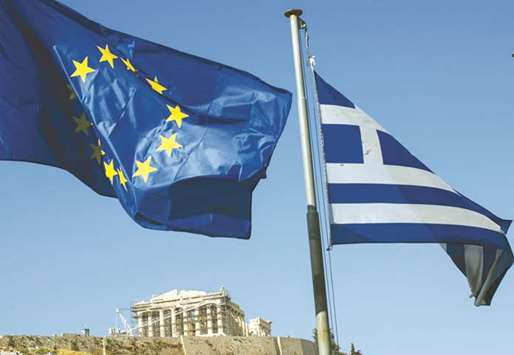On the eighth anniversary of the euro-area’s biggest bailout, Greece is closer than ever to breaking free from its creditors’ oversight and trying its luck raising money on its own. But, as August 20 – its exit day – nears, clarity is in short supply, feeding uncertainty over how easily Athens can return to normalcy.
Here are the looming questions that will determine the day after for Greece:
Will Greece get debt relief?
The euro area has agreed to ease the terms Greece faces on some of its €320bn ($383bn) of debt, but key areas of contention between the country’s creditors persist. Chief among them are which loans will be restructured; what will be the path of the primary surplus – which excludes interest payments; and, crucially, whether debt relief will be granted upfront and unconditionally, or over time and with strings attached. Creditors led by Germany favour the latter, while others including the International Monetary Fund, the European Central Bank and France argue that to be credible, relief must be granted at the end of the bailout and without conditions.
How closely will Athens be monitored?
While Greece has made clear it wants a clean exit when its bailout expires in August, its huge debt load means it’s bound to be under close surveillance for a while. This will be tighter than what’s in place for countries like Portugal and Ireland and will include regular audits, though it’s not yet clear how it will be linked to discipline from Greece’s end. Still, a strong framework that keeps Greece on its toes is key for its return to the markets, ECB Executive Board Member Benoit Coeure said last month.
Will the IMF be involved?
The IMF co-financed Greece’s first two bailouts but has refrained from participating in the third one, saying the euro-area first needs to ensure that the country’s debt – currently at around 180% of gross domestic product – is sustainable. While it seems odd to discuss the Washington-based fund’s participation in a lifeline set to expire in 3 1/2 months, the IMF’s seal of approval remains key for two reasons: lawmakers in hawkish countries such as Germany are loathe to green-light more loans without the IMF lending the bailout its credibility; and the fund’s participation would mean it deems Greek debt to be sustainable, an important acknowledgement in the eyes of investors.
Will market access come easy?
Once its bailout expires, Greece wants to forgo a precautionary credit line – a financial cushion tied to strict conditions that could help should borrowing costs spike. In the short term, Greece’s financing needs could be covered from bond sales and bailout cash until around 2020. But in the longer term, the ride could be bumpier, and will likely depend on how investors see Greece’s debt sustainability and the country’s economic prospects.
What about outside
economic risks?
Following a deep recession, Athens hopes to see a sustained economic pickup in the coming years, even as its growth lags behind the rest of Europe. The EU downgraded GDP forecasts for the country to 1.9% this year and 2.3% in 2019, down from 2.5% for both. Greece’s economy remains vulnerable to weaknesses in the euro area as well as risks from rising interest rates and the normalisation of monetary policy.
What about the banks?
Greece’s biggest banks emerged unscathed after the latest stress test by the ECB, meaning almost €20bn of funds set aside to shore up the lenders is now free for other purposes. Despite the results, the banks still face great challenges, such as their nonperforming loans, which, at nearly 50% of total loans, are the highest in Europe.
Will economic reforms stop?
For most of the past decade, Athens has been engaged in often acrimonious negotiations with creditors over the terms of its cash-for-reforms lifeline. It had to bring its finances in order, agree to privatisations and implement tough overhauls in return for much-needed loans to stave off default. This tenuous relationship has chipped away at the country’s credibility to see through key reforms on its own, raising concerns that with no carrot at the other end, it could stray. And even though Greece has implemented many overhauls, it’s less certain how dedicated the government will be to instituting reforms to the labour market or so-called structural reforms without incentives.
Will politics complicate things?
Elections sometimes tempt leaders to make promises they can’t keep, and with some analysts expecting polls in Greece as soon as this fall, the risk of pricey political pledges looms large. The next government will be the first one since May 2010 to be in charge of its economic policies, so it alone will be held responsible for the good and the bad, in polls and in the markets.

A European Union flag (left) flies alongside a Greek national flag beneath the Parthenon temple on Acropolis Hill in Athens (file). On the eighth anniversary of the euro-area’s biggest bailout, Greece is closer than ever to breaking free from its creditors’ oversight and trying its luck raising money on its own.
